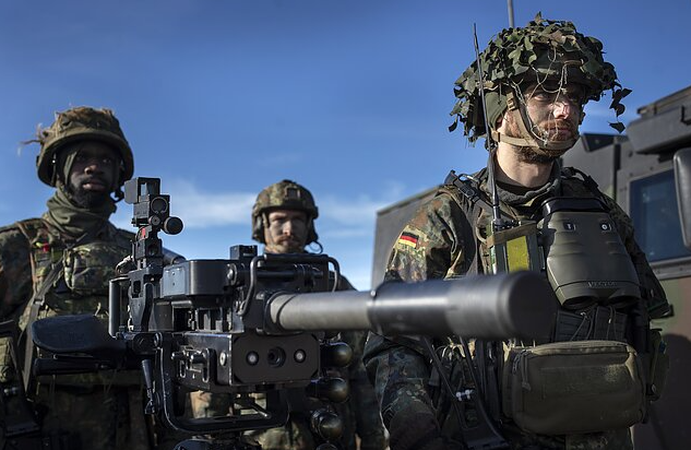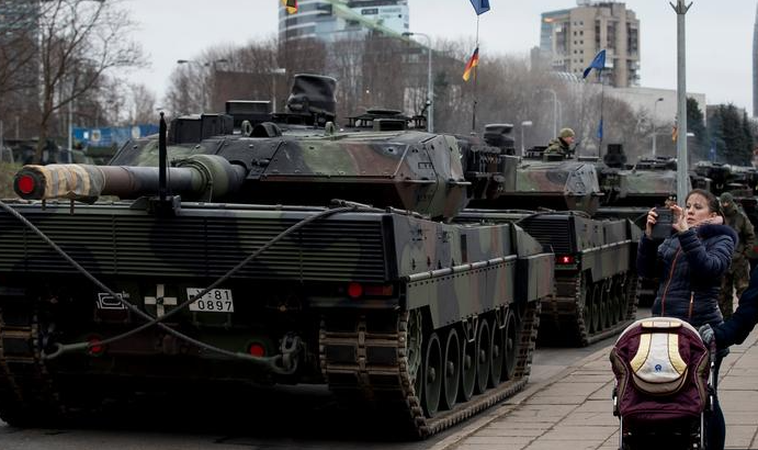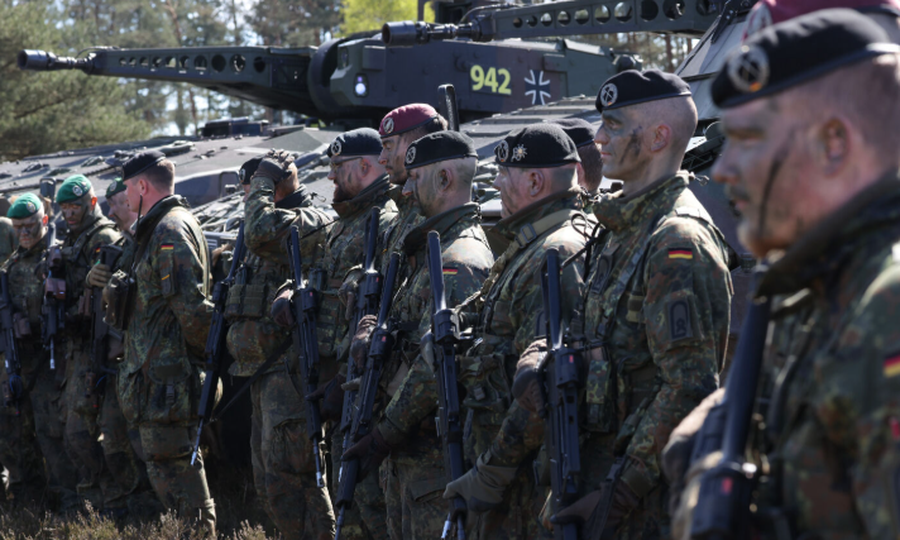
The German Army has deployed the new 45th Tank Brigade to Lithuania. Chancellor Friedrich Merz will attend the roll-out ceremony in Vilnius.
An ambitious initiative by the Bundeswehr ( German Army ) is taking shape: the deployment of around 5,000 German soldiers and officers to Lithuania. On April 1, the new 45th Tank Brigade was officially commissioned in the capital Vilnius. This brigade forms the core of the combat unit with which Germany, at Lithuania's request, will secure NATO's eastern flank - a response to Russia's aggressive war against Ukraine.
The German army until now consisted of eight brigades, but now a ninth has been added, stationed in Lithuania. This brigade will remain there permanently – a first in the history of the Bundeswehr. The new emblem of the 45th tank brigade, which the German soldiers will wear on their uniforms, also contains the symbol of Vilnius, the Gediminas Tower, as a sign of the connection between the two countries.
"Germany will be ready to defend every square centimeter of NATO territory," stressed Social Democrat Defense Minister Boris Pistorius in his first speech to the Bundestag after the change of government. The deployment of the German brigade in Lithuania is " a strong signal to our partners and a clear signal to any potential adversary ."
Lithuania, a country of three million people, is sandwiched between the Russian exclave of Kaliningrad and its ally Belarus, with which it shares a 680-kilometer border. Lithuania is currently working to establish a fully operational tank corps, for which it has ordered 44 modern German-made Leopard 2 A8 main battle tanks. The same type of tank will also be used by the Bundeswehr in Lithuania, which will facilitate cooperation between the two armies.
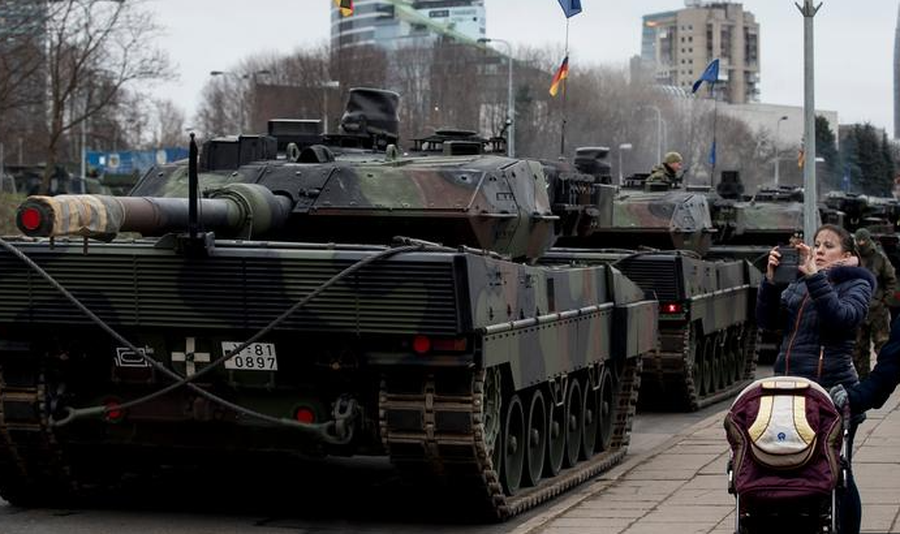
Minister Pistorius has been pushing ahead with the formation of the brigade since the summer of 2023. So far, the brigade headquarters and the first support units are at the deployment base. By the end of the year, a total of 500 German soldiers will be deployed.
Meanwhile, work continues on building infrastructure. At the Rudninkai training ground, the brigade's central base, barracks are being built, new roads are being built, and a railway section is being extended. This area is located in southeast Lithuania, about 30 km from the border with Belarus. Schools and kindergartens are being established in the cities of Vilnius and Kaunas for the families of German servicemen.
The deployment of the entire brigade will be completed by the end of 2027, which is not only a logistical but also a financial challenge for both countries. Lithuania has increased its defense budget. Germany's new government under Christian Democratic Chancellor Friedrich Merz will also not skimp on defense spending.
The question arises about the personnel that the Bundeswehr is actually lacking. Finding a total of 4,800 soldiers and 200 civilian employees who voluntarily transfer to Lithuania for several years could be a difficult undertaking.
The Minister of Defense has made preparations for this: In order to make service on NATO's eastern flank and for the Bundeswehr in general more attractive, he has committed to a law that was passed in the Bundestag at the beginning of the year. The so-called "turning point law" provides for higher salary supplements and better conditions for service assignments at home and abroad.
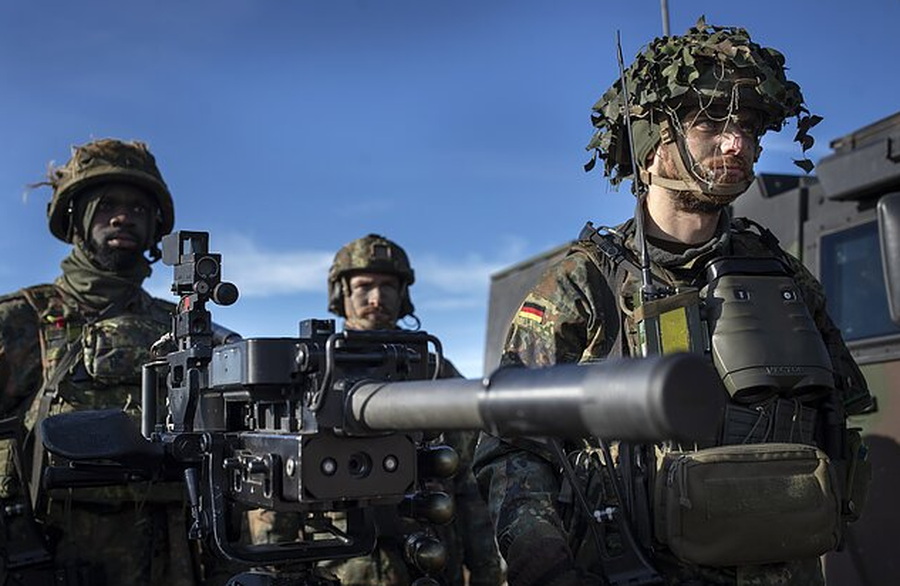
The Bundeswehr has been in Lithuania since 2017. Germany has been leading NATO's multinational Butlergroup unit there, which since April has been under the command of a new tank brigade.
The legal basis for the permanent deployment of the brigade is a government agreement signed by Germany and Lithuania in September 2024. This should "create the best possible conditions for soldiers and their families," as the Lithuanian side emphasizes.
This includes the right of the Bundeswehr to use Lithuanian facilities rent-free, to store weapons and ammunition there as needed, and to operate post offices in the field. It also allows for the opening of German-language kindergartens and schools based on German curricula, which are recognized in Lithuania./ DW /
(A2 Televizion)

